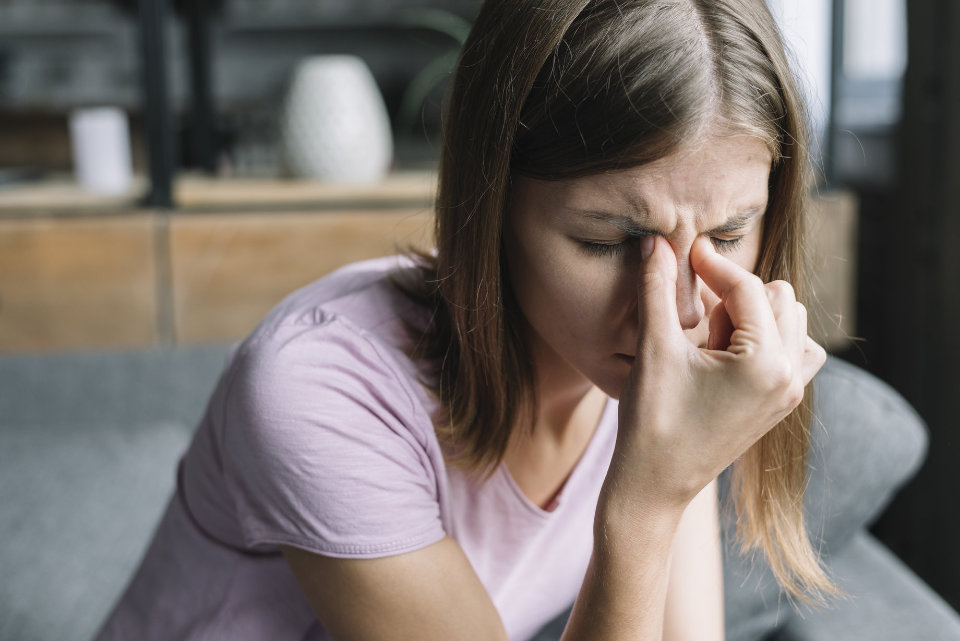What is the difference between you and the man running next to you? No, I am not talking about the level of fitness or women being the “weaker sex”. I am talking about female hormones which can have a powerful impact on your lung function, metabolism, and more.
Man’s hormonal environment is considered to be more stable than the female’s. Our hormonal balance is constantly changing due to menstrual-cycle induced oscillations in estrogen and progesterone which are intensified when you are engaging in physical activities, such as running.
Proper hormonal balance is essential for achieving peak performance, and in this article, we’ll discuss more on how it affects your fitness, and how you can look after your hormones while training hard.
How estrogen and progesterone affect your running?
Estrogen is the most important contributor to bone health and any hormonal disruptions can decrease the bones’ mineral density and leave you prone to fractures. High levels of progesterone can increase the body temperature, which can make it difficult for you to run hard, especially longer tracks during humid weather.
Consequently, this can cause your heart rate to rise which can have a negative impact on your running ability and your health. Progesterone stimulates breathing and it is higher during the luteal phase. This increases the demand for oxygen and makes you feel more winded during the luteal phase.
Women’s ability to get stronger is affected by estrogen and the menstrual cycle and it is also a crucial factor in endurance, so you can expect to be stronger when the estrogen is dominant, and perform worse when progesterone is the hormone “in charge”.

How other hormones affect your running?
Other hormones that can have an impact on your performance are the growth hormone (its production is higher the harder you work and it stimulates muscle growth), cortisol (it breaks down protein and fat, but it can also cause excessive breakdown and lead to sleep disturbances), EPO (it increases oxygen capacity), endorphin (euphoria caused by running hard), epinephrine (it triggers the fight-or-flight response), testosterone (regulates endurance and stamina).
What are the symptoms of hormonal imbalance?
So, how can you know you even have troubles with hormonal imbalance? Some of the symptoms you can experience (pay special attention to them while running, of course) are mood swings, irritability, fatigue, irregular or heavy periods, headaches, brain fog, stomach cramps, and food cravings.

How to achieve the right balance?
Each of the hormones above has its role in how successful you’ll get in your running efforts, but too much or too little of any of them can cause problems. Here are a few tips which will help you achieve and maintain the balance.
1. Change your diet
As a beginner runner myself, my initial goal was to lose fat, and that’s why I started with a low-carb diet and running combined. What I didn’t know is that, as a woman, I need to increase my carb and calorie intake to be able to sustain long tracks. Healthy fats, proteins, and carbs (no processed foods and sugars) are the way to go. An extra tip: eat a lot of leafy greens, they do miracles for hormonal balance.
2. Take charge of your estrogen levels
While estrogen dominance can be a good thing for endurance and strength, when it goes to high up, it can cause fatigue and lethargy, which can definitely have an impact on your training. To find a healthy response to excess estrogen you can turn to natural estrogen blockers such as nettle root and Tongkat Ali, or products containing these ingredients.

3. No stress = no mess
When in stress mode, your body produces more cortisol which throws your hormones out of balance and can lead to sleep disturbance and fatigue. There are useful products called cortisol blockers you can take, but you can start with meditation and breathing exercises and see how that works for you.
4. Cut back on coffee
Caffeine is linked to aggravating PMS symptoms, and we all know that can’t be good for our running. So, one cup in the morning to wake you up will be enough.

5. Train in the afternoon or evening
Cortisol levels are the highest in the morning and subjecting your body to training during that period can cause an imbalance which can affect your performance. So, try running in the evening instead.
6. Sleep well
Sleep is the period of recovery for your body. The lack of sleep causes fatigue and decreases your focus, but it also increases the levels of cortisol. Get enough quality sleep, particularly the night before the run.

7. Take some time to warm up and cool down
Warming up increases the heart rate and the blood flow which is particularly important for those who have a hormonal imbalance, as fatigue and inflammation can make you more prone to injuries and fractures. Cooling down, jump starts the recovery.
Final word
Running is one of the healthiest physical activities, but it doesn’t come without its risks, especially for us ladies battling hormones and menstrual cycles.
I hope the tips above will help you overcome all the potential risks and become the best runner you can be.





